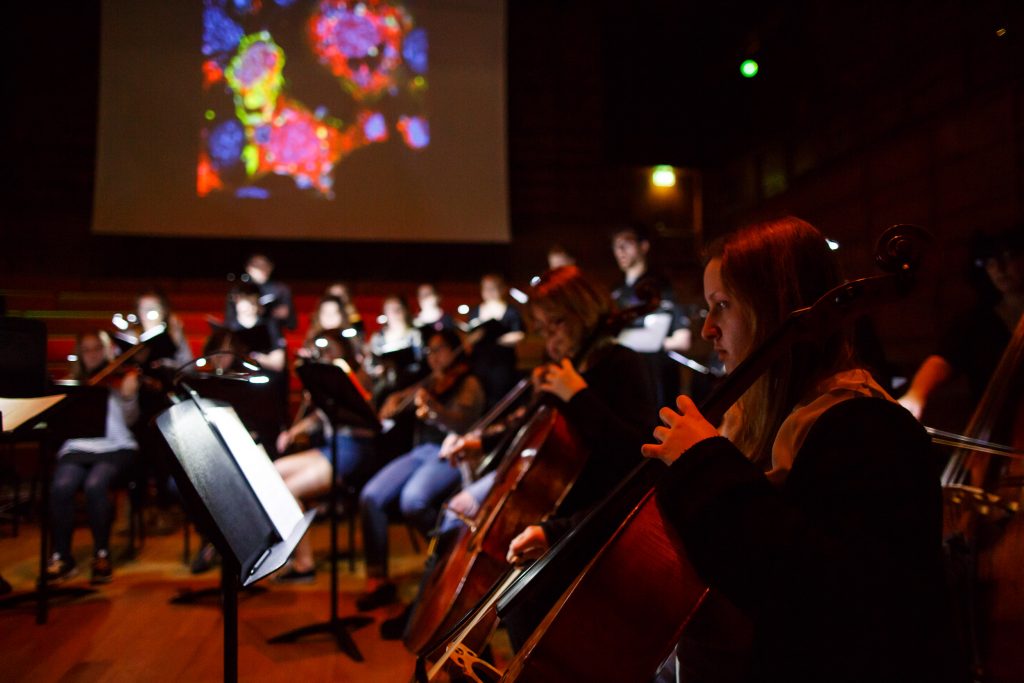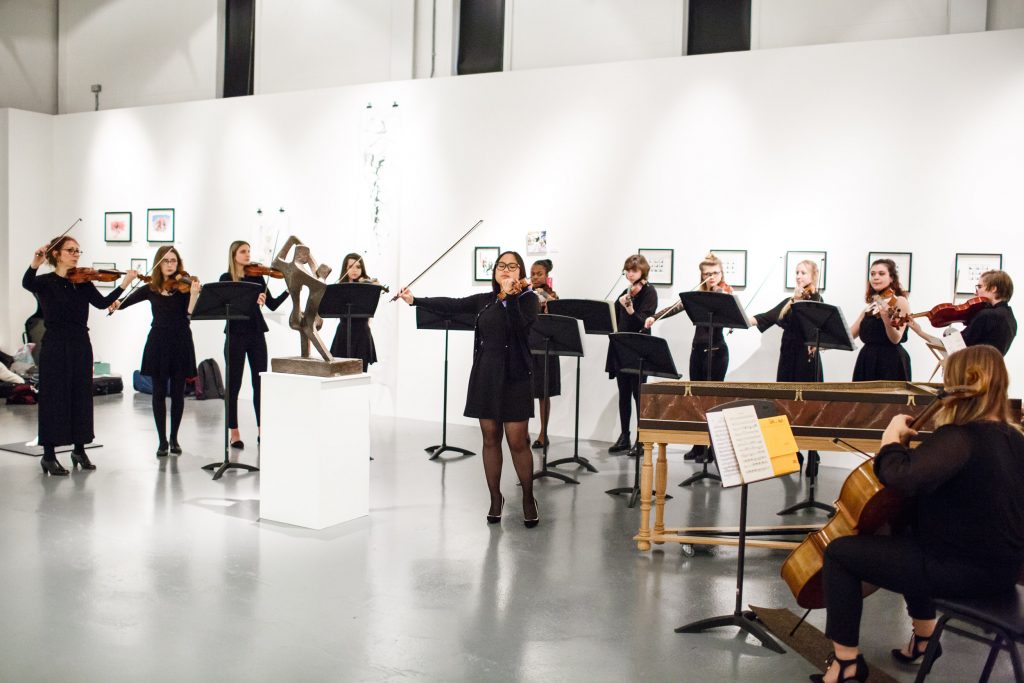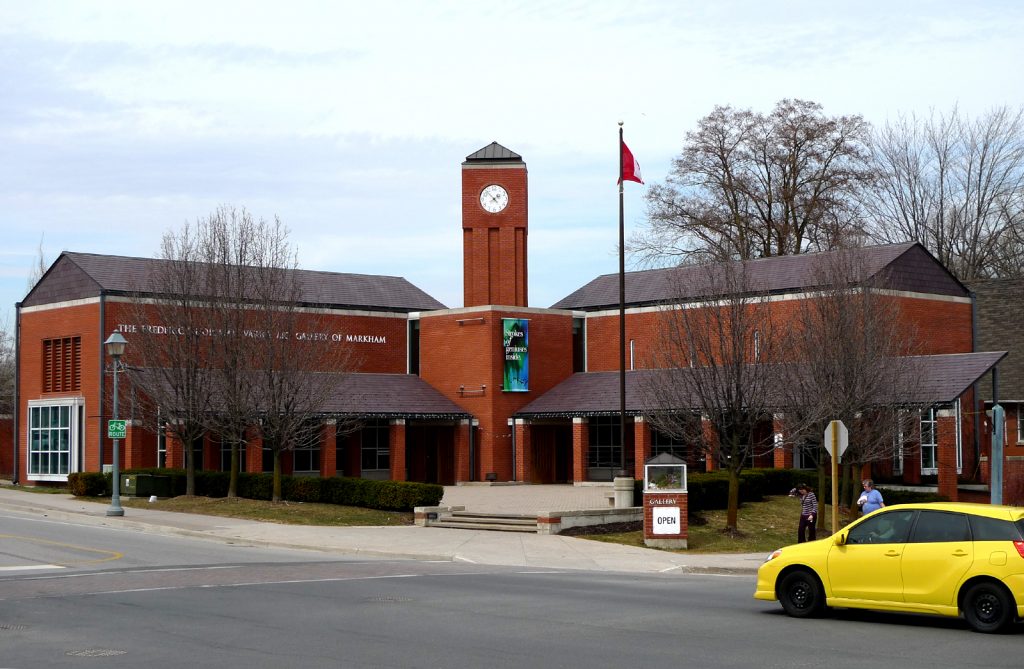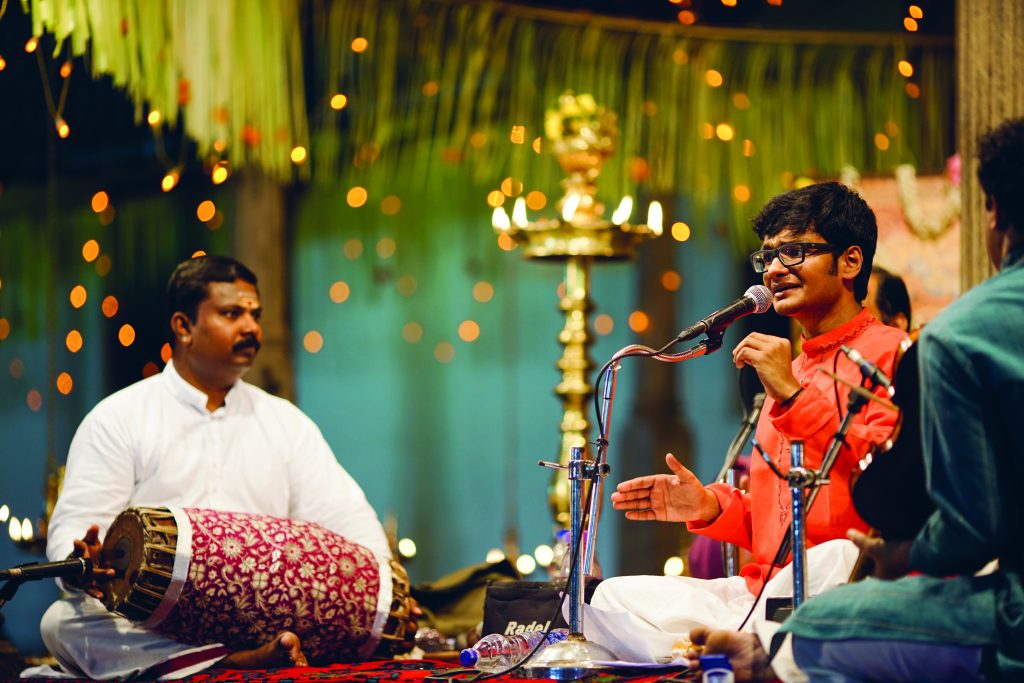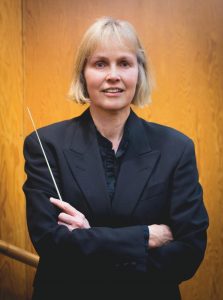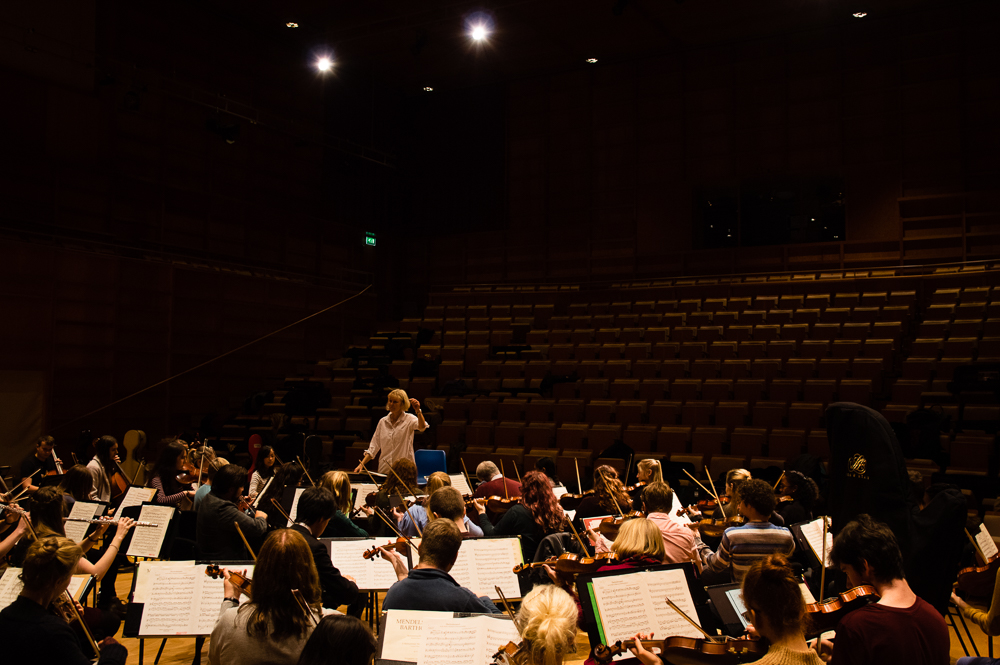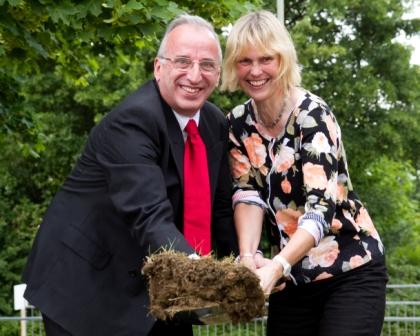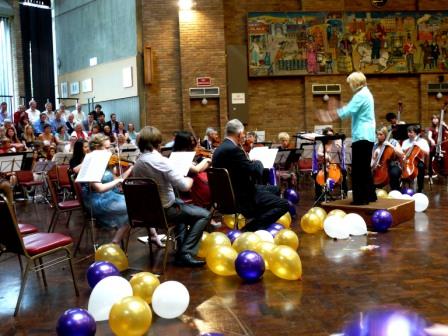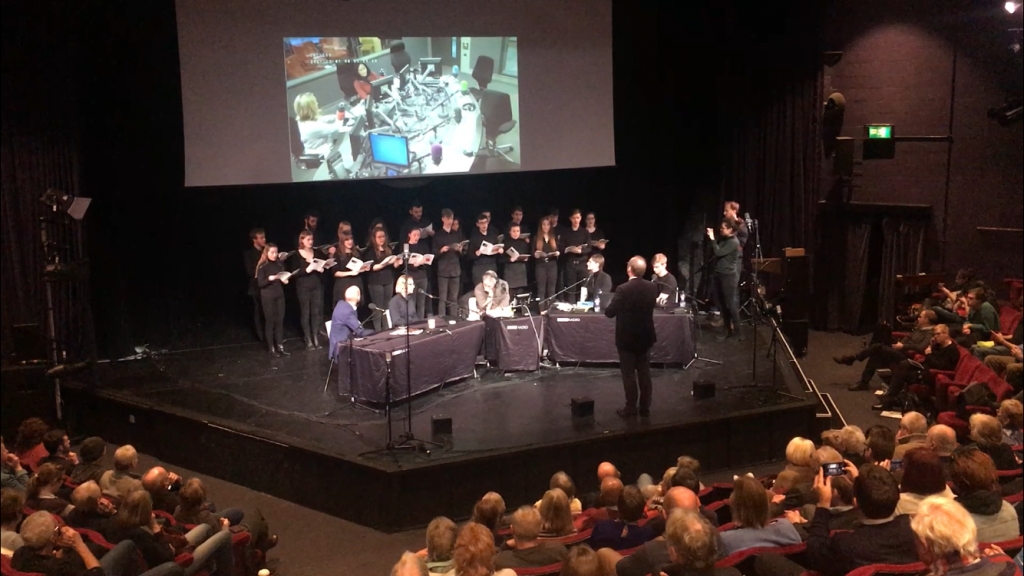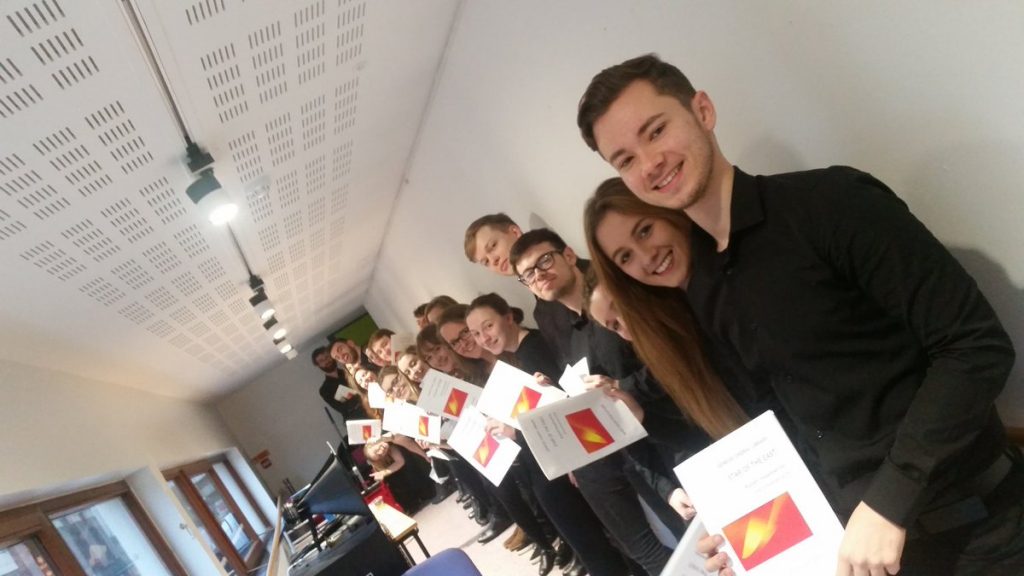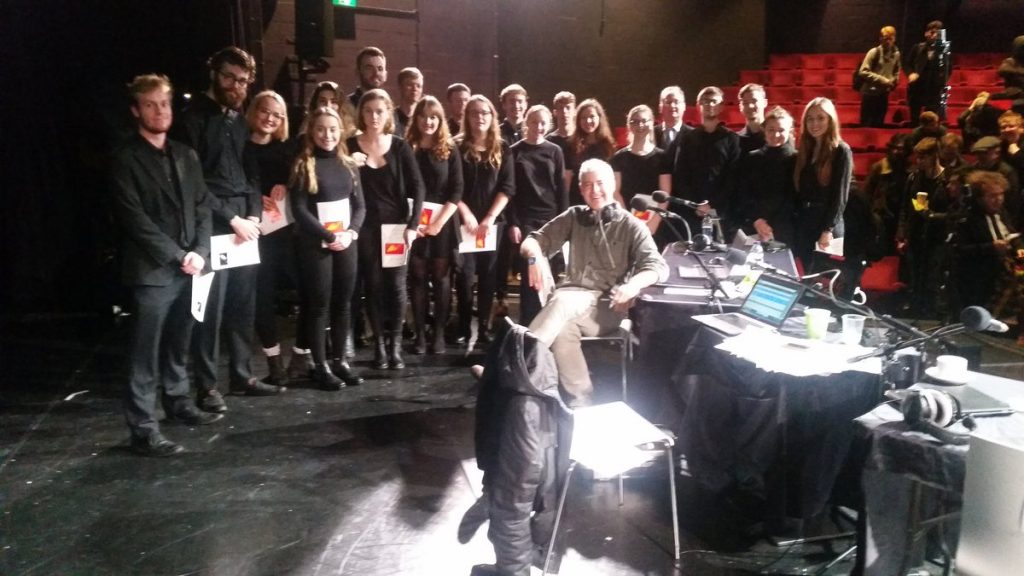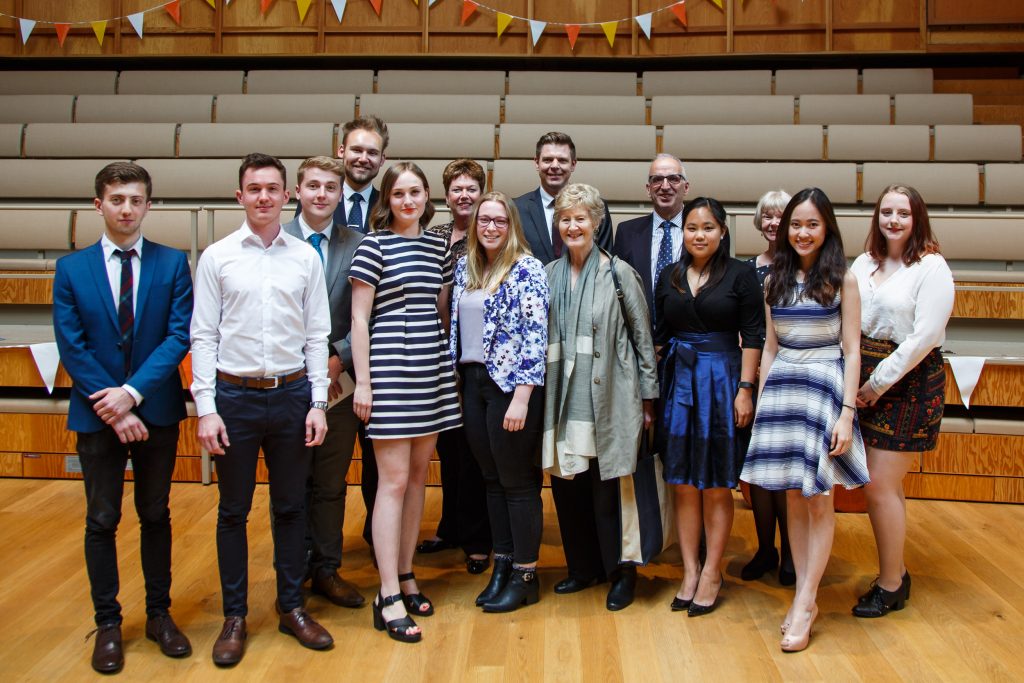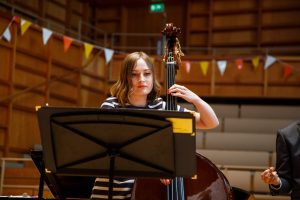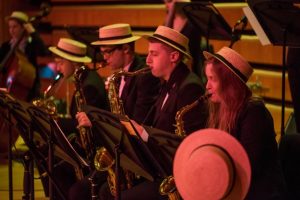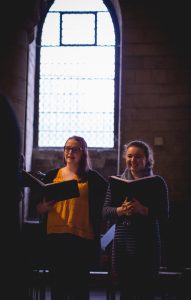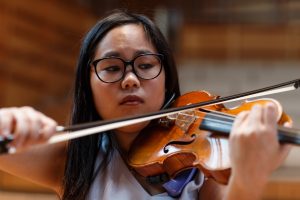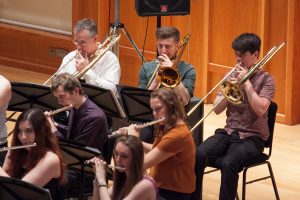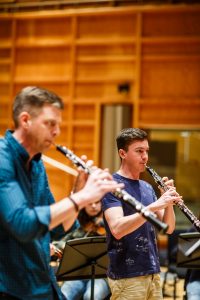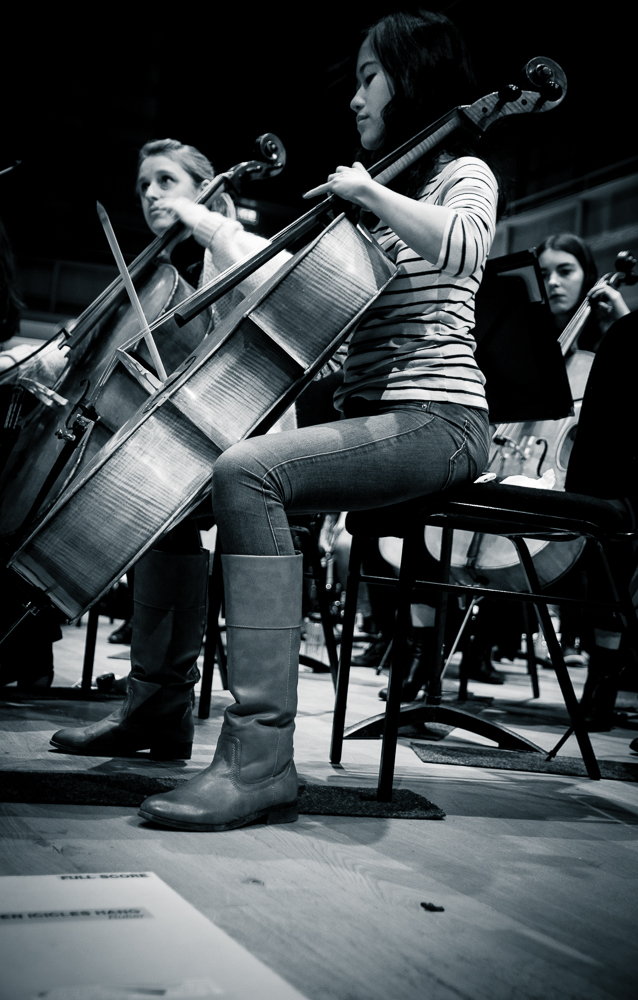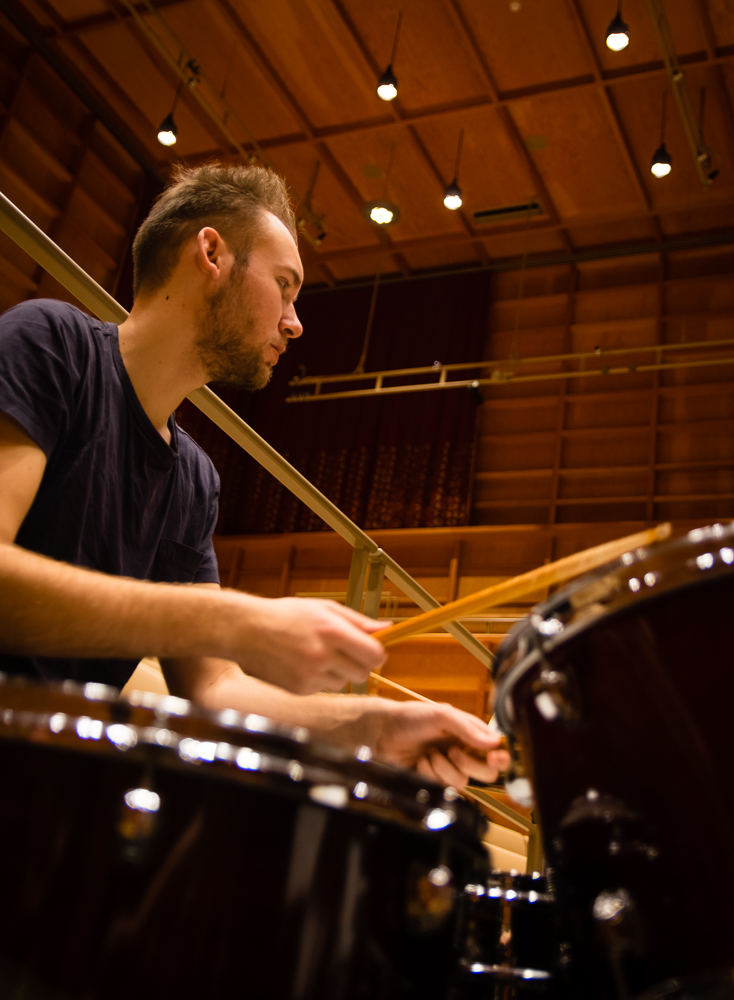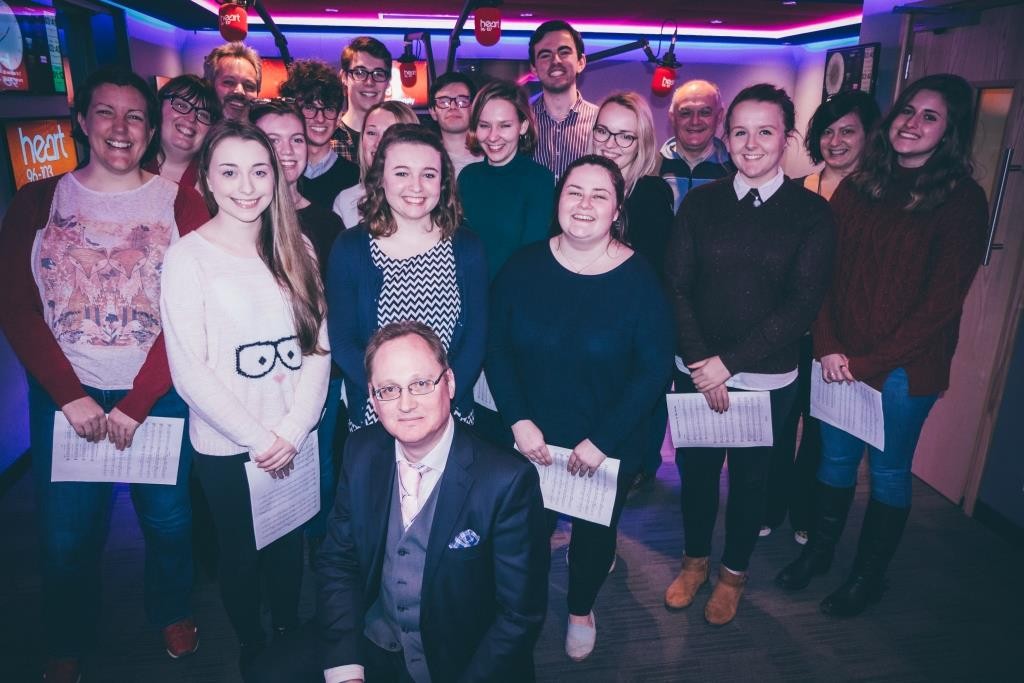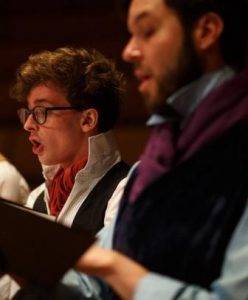Towards the end of each academic year, the Music department takes the opportunity to recognise the outstanding contributions made by a few of those who have participated in music between September and June in an awards ceremony, held as part of Summer Music Week.
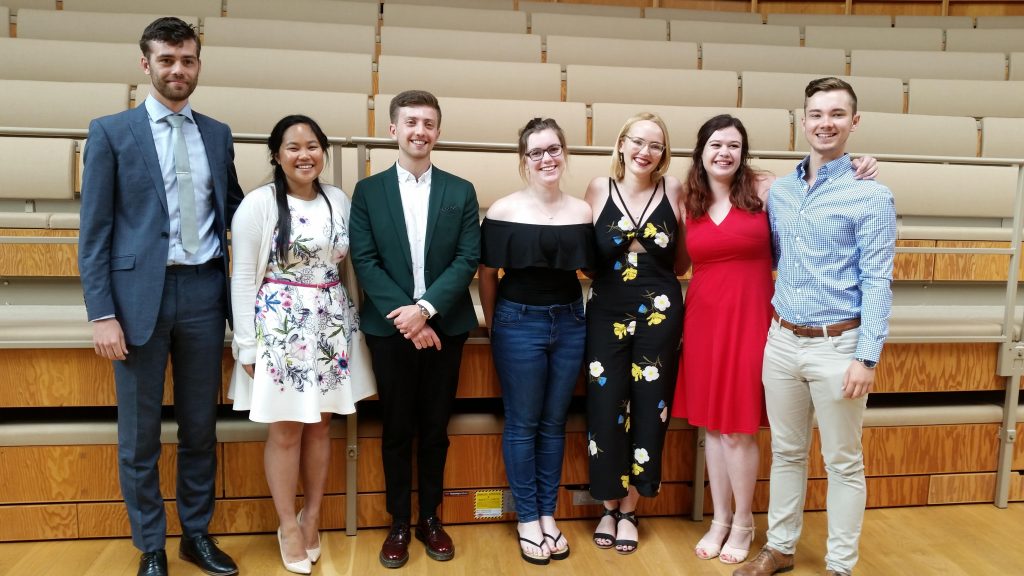
The Canterbury Festival Music Prize, awarded to a final-year student who has made an outstanding contribution to music, was awarded jointly to Lydia Cheng and Charlotte Webb. A final-year student reading Law, Lydia is a wonderfully talented violinist – indeed, she turned down music scholarships to both Berkeley and McGill to come to Kent! Such is her commitment and talent that she has lead the Symphony Orchestra for the last two years. She also plays in the String Sinfonia and has performed in chamber music lunchtime concerts. She is a Music Performance Scholar, studying with Floriane Peycelon and Kathy Shave, and has also been one of the Symphony Orchestra Assistants for the past two years. This year Lydia has been in great demand from other local orchestras to play in their concerts so has been an excellent ambassador for our music-making. Charlotte Webb is a final-year student reading Biomedical Science with a year abroad
Charlotte spent her third year in Canada and has certainly made the most of her final year back in Kent. She is a Music Performance Scholar, studying singing with Peter Cox, and sings in the University Chorus, Chamber Choir and Cecilian Choir. She has featured as soloist in many concerts, including our performances this year of Handel’s Messiah and Pergolesi’s Stabat Mater. And as well as all this, Charlotte has also played Principal Trumpet in the Symphony Orchestra this year, and acted as the Music Society Social Secretary, whose main role seems to be carting people off to K-Bar after rehearsals…
The students received their awards from Keith Mander, Chair of the Canterbury Festival and former Pro Vice Chancellor at the University.
The Colyer-Fergusson Music Prize, which is awarded in recognition of a student’s involvement in organising music at the University went to Alice Baker, a final-year student reading Wildlife Conservation. The award recognised her exceptional all-round behind-the-scenes organising and admin skills as the Chorus Manager this year – the issuing and returning of all the chorus members’ vocal scores for each major concert and liaising closely with the Music Department, no mean feat for a leviathan chorus numbering around 180 members! She is a Music Performance Scholar, studying singing with Juliet Schiemann, and sings in the University Chorus, Chamber Choir, Cecilian Choir, and the Lost Consort.
Alice was presented with her award by the Director of Music, Susan Wanless.
The University Music Prize is an award donated by Professor John Craven, a former Deputy Vice Chancellor at Kent, and is awarded to returning students who have made a major contribution to music throughout the year. This year, it was awarded jointly to Matthew Cooke and Molly Richetta. A second-year student studying French and Business Administration, Matt has certainly had a very busy year of music-making. He is the student conductor of the University Chamber Choir and was the musical director for the Musical Theatre Society’s production of Bonnie and Clyde in the Marlowe Studio. He also plays trumpet in the Concert Band and Big Band, and sings tenor in the University Chorus, Chamber Choir and Cecilian Choir. This year he has received a Music Performance Award to study singing with Peter Cox and was a soloist in both the December Choral Concert and in Messiah. In her second year studying Mathematics, Molly Richetta is a Music Performance Scholar and studies violin with Floriane Peycelon. She made the fatal mistake of telling us that she also plays viola (a rare breed!) so this year she has swapped between playing both instruments in the String Sinfonia, and has become a very accomplished leader of the viola section in the University Symphony Orchestra. Like Lydia, she has also been in great demand from other local orchestras to play in their concerts so has been an excellent ambassador for our music-making.
Both students were presented with their awards by Professor April McMahon.
Finally, the David Humphreys Music Prize, which is awarded to a student who has made a particularly special music contribution, was awarded jointly to Douglas Haycock and Jasper Rose. A final -year student, reading Law, Douglas Haycock is a Music Performance Scholar, studying singing with Peter Cox, and sings in the University Chorus, Chamber Choir, Cecilian Choir and the Lost Consort. He has featured as soloist in many concerts, including the December Choral Concert and Messiah last term. He has just finished his year as President of the Music Society and also plays tenor saxophone in the Concert and Big Bands. It is particularly fitting that Doug is receiving this prize as he conducted the Chamber Choir in his second year and, thanks to the David Humphreys’ Music Fund, was able to go on a conducting course and have the opportunity to perform in Canterbury Cathedral’s crypt. Jasper Rose is a final-year reading Criminal Justice and Criminology on our Medway campus, and has played trombone in the National Youth Jazz Orchestra and is a Music Performance Scholar, receiving lessons with Geoff Mason. He is a really exceptional player, leading the trombone section in Concert Band and taking the spotlight in many improvised solos in the Big Band. He has also been principal first trombone in the University Symphony Orchestra for the past three years.
Douglas and Jasper received their awards from David’s daughters, Josephine Humphreys and Belinda Howard.
The Music Awards Committee has a difficult job in deciding which candidates in particular to recognise with awards, and this year was especially challenging with so many involved in our music-making across the year; our thanks both to the award-winners, and to the wider community of University musicians, students, staff and alumni, who have given so much of their time and enthusiasm in rehearsing and performing this year. What will next year bring…


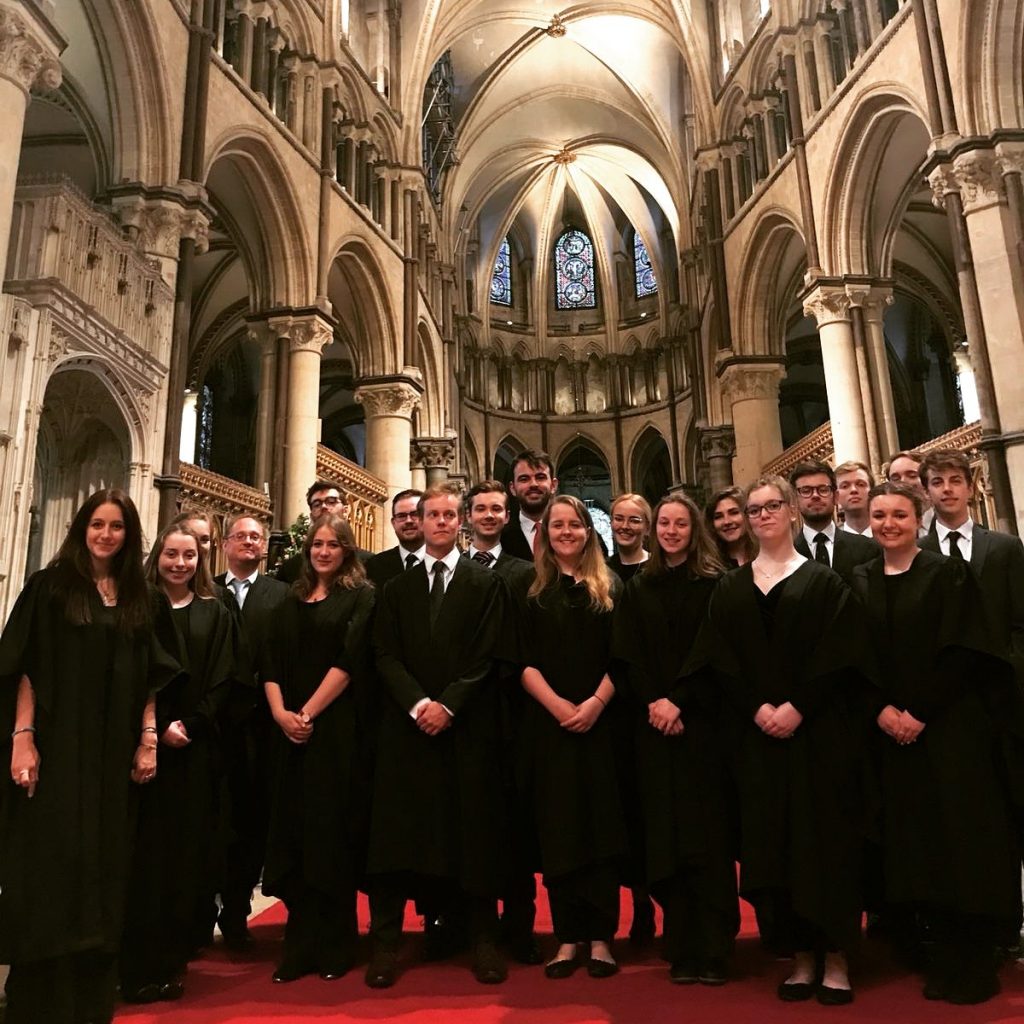

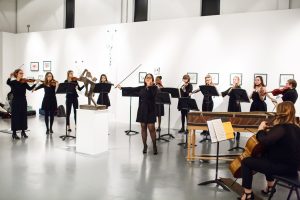 The performance on
The performance on 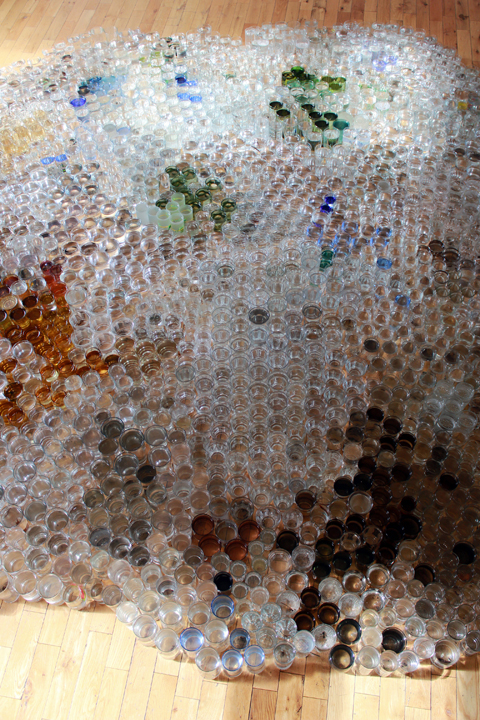
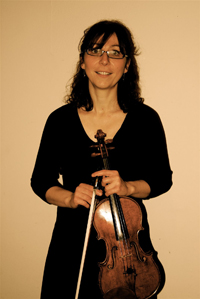 The Director of the ensemble, Floriane Peycelon (pictured) – a freelance violinist, performer and teacher who also leads the Folkestone Symphony Orchestra – is particularly looking forward to the event; “It’s a terrific thing for the students,” she enthuses, “giving them the wonderful opportunity to take their music-making abroad and showcase the prolific talent amongst the string-players at Kent – and they are not even reading Music as a degree! The chance to play at an art gallery is very exciting – I love finding unusual spaces in which to perform.’’
The Director of the ensemble, Floriane Peycelon (pictured) – a freelance violinist, performer and teacher who also leads the Folkestone Symphony Orchestra – is particularly looking forward to the event; “It’s a terrific thing for the students,” she enthuses, “giving them the wonderful opportunity to take their music-making abroad and showcase the prolific talent amongst the string-players at Kent – and they are not even reading Music as a degree! The chance to play at an art gallery is very exciting – I love finding unusual spaces in which to perform.’’